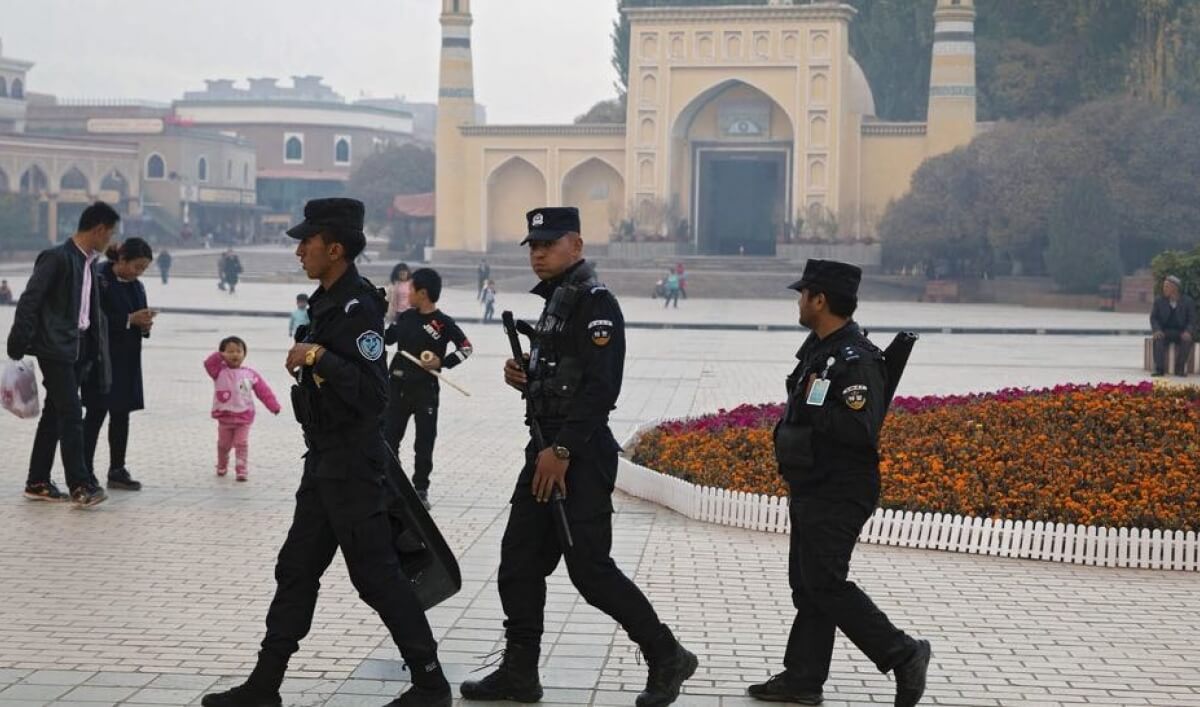The United Kingdom (UK) and Canada on Tuesday accused China of engaging in human rights violations against religious and ethnic minorities in the Xinjiang Uighur Autonomous Region (XUAR) in the north-western part of the country and announced new regulations to ban imports of goods suspected to be a product of forced labour.
In a strongly-worded statement to the Parliament, British Foreign Secretary Dominic Raab denounced Beijing’s “horrific barbarism” as he outlined the scale and severity of abuses against Uighur Muslims in the region, which include the extra-judicial detention and torture of over a million Uighurs and other minorities in political re-education camps, extensive and invasive surveillance towards them, systematic restrictions on their cultures and practices, and the widespread use of forced labour.
“All on an industrial scale. It is truly horrific. Barbarism we had hoped lost to another era, being practised today, as we speak, in one of the leading members of the international community,” Raab said. “We have a moral duty to respond,” he added. He then laid out plans to prohibit British companies from entering into contracts with the government if they inadvertently or deliberately profit from, or contribute to, human rights violations against the Uighurs in Xinjiang.
The measures also include the strengthening of Britain’s Modern Slavery Act to introduce fines for businesses not complying with transparency rules, extending the act to the public sector, and an “urgent review” of export controls around Xinjiang. “Our aim put simply, is that no company that profits from forced labour in Xinjiang can do business in the UK, and no UK business is involved in their supply chains,” Raab noted.
Canada followed suit shortly after and declared measures to “address the risk of forced labour from any country from entering Canadian and global supply chains and to protect Canadian businesses from becoming unknowingly complicit.” Minister of Foreign Affair François-Philippe Champagne and Minister of Small Business, Export Promotion, and International Trade Mary Ng the made the announcement.
Ottawa urged companies with business links to the Xinjiang region to “closely examine their supply chains” to make sure their companies were not participating in the use of forced labour, and asked them to “take every step possible to ensure that they conform to Canadian law with respect to the prohibition on the import of goods produced by forced labour.” Any company with ties to the region will now be expected to sign a declaration with the Trade Commissioner Service, acknowledging that it “is aware of the human rights situation in Xinjiang; abides by all relevant Canadian and International laws, respects human rights, and seeks to meet or exceed OECD Guidelines for Multinational Enterprises and the UN Guiding Principles for Business and Human Rights.”
“Canada is deeply concerned regarding the mass arbitrary detention and mistreatment of Uyghurs and other ethnic minorities by Chinese authorities. Nobody should face mistreatment on the basis of their religion or ethnicity. Together with the UK, we are taking action to ensure we are not complicit in the abuse of the Uyghur Muslims in Xinjiang,” FM Champagne said. The UK and Canada also condemned China for its actions in Hong Kong in a joint statement with Australia and the United States on Sunday, expressing “serious concern” about the arrest of more than 50 pro-democracy activists under the new national security law.
As expected, the statements by the UK and Canada were welcomed by the US, with State Department spokesperson Ned Price calling on other countries to follow suit.
We welcome the actions of Canada and the UK to address forced labor and human rights in Xinjiang by raising awareness and imposing costs on organizations that enable abuses. We encourage others to take similar steps and join our shared condemnation of PRC abuses in the region.
— Morgan Ortagus (@statedeptspox) January 13, 2021

